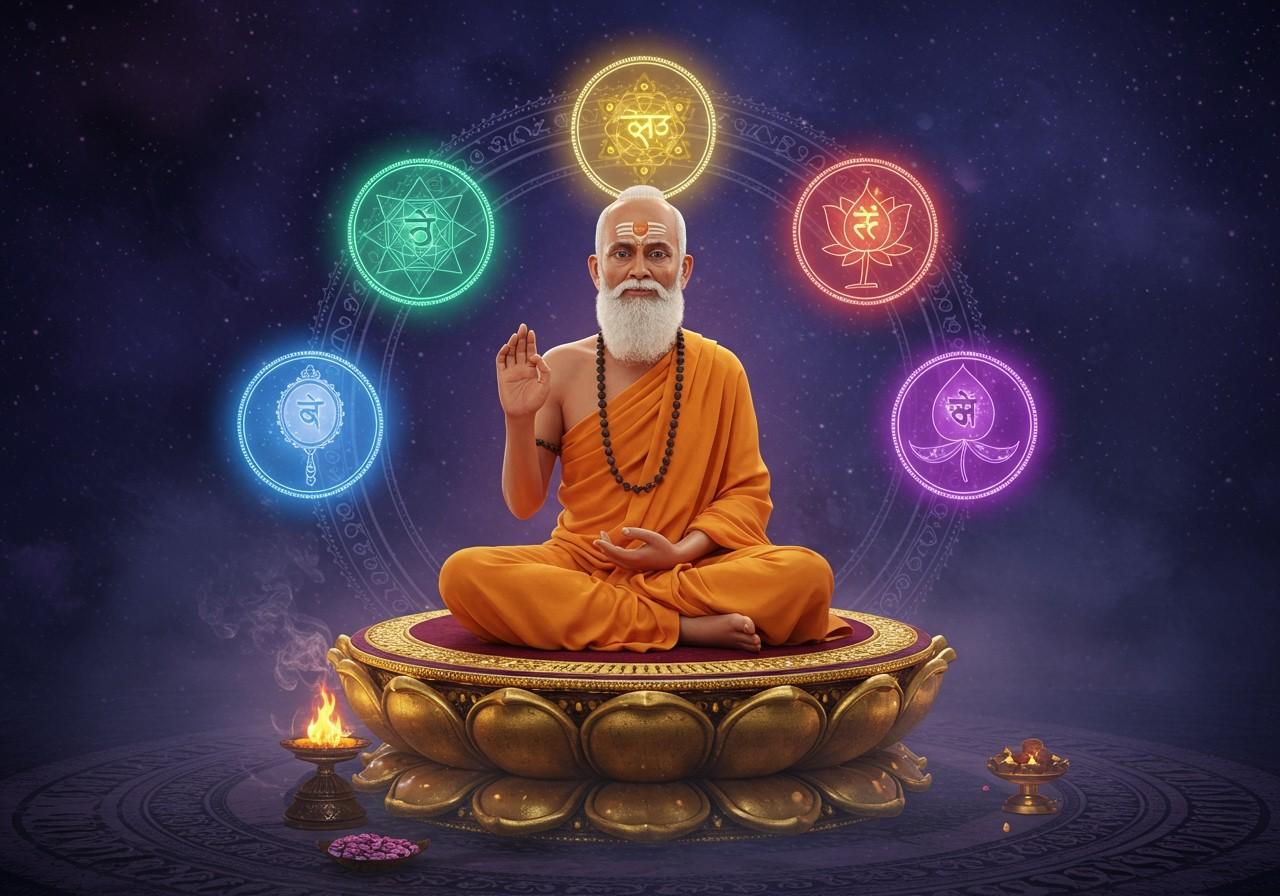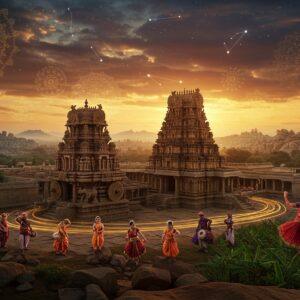Delving into Nyaya: A Comprehensive Guide to Indian Logic

Nyaya, signifying “justice,” “rules,” or “method,” stands as one of the six orthodox schools of Hindu philosophy. It’s also recognized as tarkashastra (science of reasoning), pramanashastra (science of logic and epistemology), and anviksiki (science of critical study). This exploration delves into the core tenets of Nyaya, offering a clear understanding of its principles and significance.
Unveiling the Essence of Nyaya Philosophy
Nyaya, meaning “rule” or “method,” prioritizes systematic reasoning and logic. It revolves around pramanas, the avenues to knowledge: perception, inference, comparison, and testimony. The core aim is to distinguish true knowledge (prama) from falsehood (apramana). Nyaya furnishes a framework for critical thinking and debate, influencing other Indian philosophies and shaping classical Indian logic. For a deeper dive into Hindu philosophy, explore this insightful guide: Hindu Philosophy Explained: A Beginner’s Guide.
The Origin and Development of Nyaya
Gautama, also known as Akshapada Gautama, is the founder of Nyaya philosophy. His Nyaya Sutras form the bedrock of this school of thought, emerging from the Vedic and post-Vedic philosophical landscape. Gautama’s structured approach established the foundation for logical inquiry and debate in ancient India. Vatsyayana and Udyotakara further expanded Gautama’s teachings, adding depth and clarity. Vatsyayana’s Nyaya Bhashya, a commentary on the Nyaya Sutras, elaborates on Gautama’s logic, making it accessible and broadly applicable. To understand the significance of symbols within Hinduism, read more here: Hindu Symbols Explained: Their Meanings and Importance.
Navigating Nyaya Logic
Nyaya’s logical system revolves around a five-step syllogism: proposition, reason, example, application, and conclusion. This methodical process ensures clarity and precision in arguments. Tarka, or logical reasoning, plays a crucial role in resolving doubts and establishing truths, addressing fallacies (hetvabhasa) to ensure argumentative soundness. Nyaya’s systematic reasoning extends beyond philosophy, influencing discussions on metaphysics and epistemology across various Indian schools of thought. Its enduring legacy continues to impact contemporary logical discourse.
Nyaya’s Influence on Knowledge and Debate
Nyaya promotes rational discourse and dialectics as essential tools for uncovering truth and dispelling ignorance. It categorizes debates into vada (discussion), jalpa (disputation), and vitanda (destructive criticism), fostering intellectual rigor and critical inquiry. Nyaya’s logical framework has wide applications in law, theology, and linguistics. Its principles cultivate a culture of debate and dialogue crucial to educational and philosophical practices across India.
Nyaya’s Relevance and Applications in the Modern World
Nyaya’s methods remain relevant in contemporary contexts. Its logical principles enrich discussions in philosophy of science and cognitive studies. Nyaya’s approach to reasoning enhances critical thinking and analytical skills in education. Cross-cultural dialogues benefit from Nyaya’s insights into logic and reason, with ongoing academic interest worldwide. If you’re interested in exploring your inner self through a Hindu philosophical lens, consider this guide: Connecting With Your Inner Self: A Hindu Philosophy Guide.
Key Aspects of Nyaya Philosophy
- Epistemology: Nyaya’s significant contribution lies in its systematic development of logic, methodology, and treatises on epistemology. It accepts four pramanas as reliable means of gaining knowledge: perception (pratyakṣa), inference (anumāṇa), comparison (upamāna), and testimony (śabda). It delves into how we acquire knowledge and what constitutes valid sources of information.
- Liberation: Nyaya, both philosophical and religious, aims to alleviate human suffering stemming from ignorance of reality. This liberation is achieved through right knowledge. It offers a path towards understanding the nature of reality and achieving freedom from suffering.
- Metaphysics: Nyaya’s metaphysics aligns closely with the Vaisheshika school, positing that suffering arises from mistakes and defects caused by actions under wrong knowledge (notions and ignorance). It explores the nature of reality and existence, delving into the fundamental principles governing the universe.
- Causation: Nyaya defines a cause as an unconditional and invariable antecedent of an effect. This principle helps in understanding the relationship between cause and effect, a fundamental aspect of the physical world.
- Categories: The Naiyyayikas, followers of Nyaya, are realists who believe in knowing external entities as they are. The Nyaya epistemic tetrad comprises knowledge (prama), the object of knowledge (prameya), the knower (pramatr), and the means of knowledge (pramana). These categories provide a framework for understanding the process of knowledge acquisition and the relationship between the knower and the known.
Poojn.in: Supporting Your Journey into Nyaya
Poojn.in offers resources to enhance your study of Nyaya Philosophy:
- Sacred Texts: Explore authentic Nyaya Sutras and related philosophical texts, often with translations. These are essential for grasping Nyaya’s logical principles. Immerse yourself in the original scriptures and delve into the depths of Nyaya’s wisdom.
- Ritual Items: Find traditional items like copper vessels and bells used in philosophical discussions and debates, adhering to ancient Indian customs. Enhance your study and practice with authentic ritual objects that connect you to the tradition.
Visit Poojn.in for a wide selection of authentic products to enrich your exploration of Nyaya Philosophy. Our expert-verified items come with detailed instructions in multiple languages. Contact our knowledgeable customer service team for personalized recommendations and guidance. Shop Now at Poojn.in
Embracing Nyaya in Contemporary Life
Nyaya philosophy, a beacon of logical thought and rational discourse, guides our pursuit of truth and clarity. Embracing Nyaya honors a tradition that values critical thinking and systematic reasoning. Its methods aid in informed decision-making and meaningful dialogue, encouraging deep thought and questioning assumptions. By exploring and applying Nyaya, we connect with a rich heritage that fosters personal growth and societal contribution. Let Nyaya’s wisdom guide us in our ever-evolving world.


